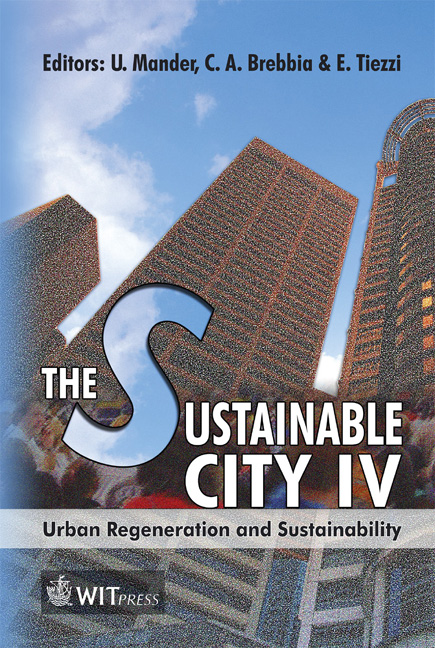Entropy And The City
Price
Free (open access)
Transaction
Volume
93
Pages
10
Published
2006
Size
306 kb
Paper DOI
10.2495/SC060251
Copyright
WIT Press
Author(s)
N. Marchettini, F. M. Pulselli & E. Tiezzi
Abstract
The sustainability assessment of a complex human system, such as a city, must start from the knowledge of physical laws and constraints which the development of the system is based on. It is well known that the Second Law of thermodynamics states that an isolated system tends towards maximum entropy, that implies maximum disorder. In general, life seems to contradict the Second Law since we observe that the trend of living organisms is towards the creation of order where previously there was disorder: it is the trend to organize and self-organize. Ilya Prigogine called these systems \“dissipative structures” that are thermodynamic self-adaptive systems open to both energy and matter. Human systems (economic, social, urban, etc.) use relations and exchanges with their environment in order to survive and might be identified as dissipative structures far from thermodynamic equilibrium. In particular, the evolution and maintenance of a city is possible due to inputs of natural resources from the terrestrial ecosystems and outputs of heat and wastes into terrestrial ecosystems. Edgar Morin said that the autonomy of a system is funded on the dependence on the environment so that autonomy and dependence are complementary concepts, although they seem in contrast, and there cannot be autonomy without dependence. Different kinds of inputs, especially from the environment, are stored in a city and become part of its \“living” structure. Morin’s concepts of autonomy and dependence for human systems suggest that those systems must evolve between two extremes: autarchy and globalisation. This paper seeks to show how, in entropic terms, these two configurations are inconsistent with the concept of sustainability. Keywords: sustainable development, second law, entropy, autarchy, globalization.
Keywords
sustainable development, second law, entropy, autarchy, globalization.





